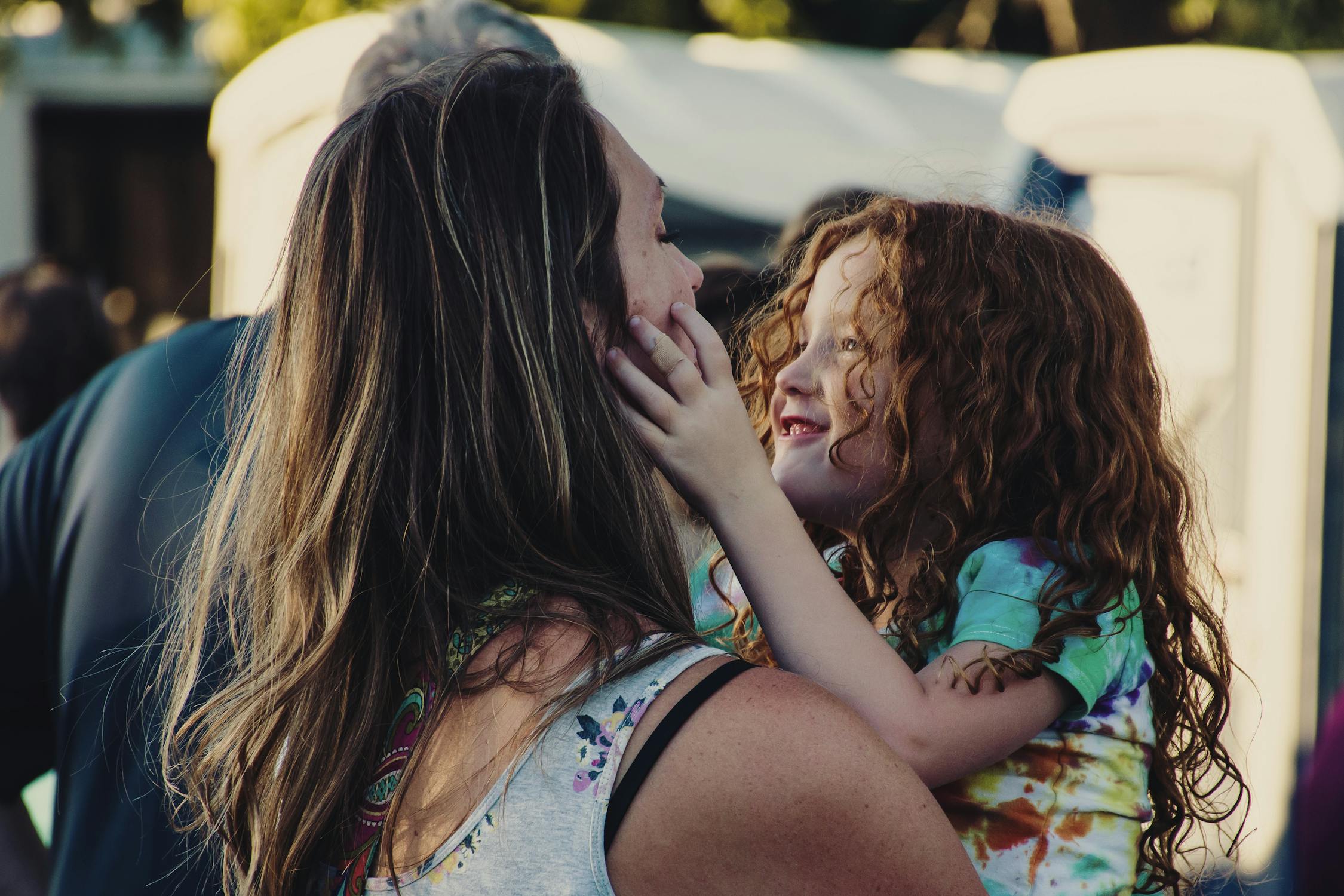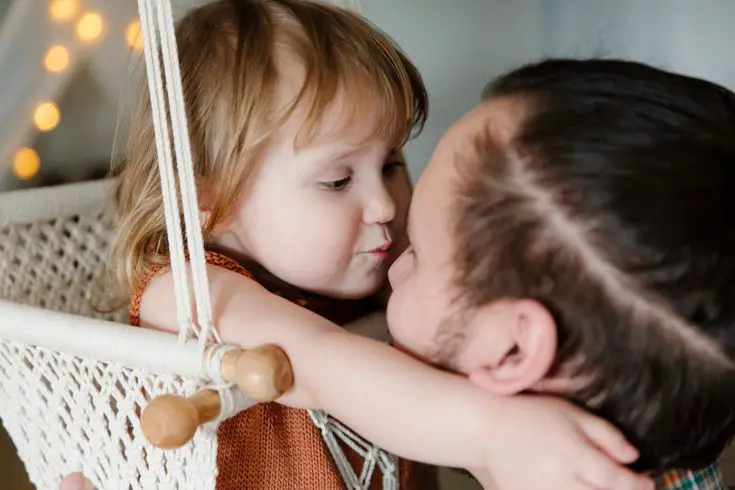Getting on the adventure of nurturing tiny humans sometimes takes unexpected turns when nasty comments and rebellious behavior emerge.
Those furrowed brows, the defiant words, the eye rolls threatening to take you down – it’s a challenge that many parents face, a piece of the puzzle that can shake up the CALM PICTURE of family life.
In the face of such behavior, a common question arises: “What causes a child to be disrespectful?”
It’s a HEAD-SCRATCHER that parents, teachers, and caregivers frequently encounter while raising children.
And hey, you don’t need a fancy degree in child psychology to understand this!
Today, in this article, we will discuss what might be causing a child to act disrespectfully and, more importantly, how you can TURN THINGS AROUND with a touch of parenting magic.
So, no more beating around the bush – let’s jump right in!


What Causes a Child to Be Disrespectful?
Addressing behavioral challenges in children is a common task for parents or caregivers, and one COMMON PROBLEM they often encounter is disrespectful behavior.
The reason behind such behavior can be varied, ranging from environmental influences to individual factors.
Let’s discuss some of the most common reasons in detail.
Fake Promises Cause Children to Be Disrespectful
When we make promises with children, it might not seem like a BIG DEAL, but it really is!
Think about it: what if someone says they’ll do something, but then they don’t?
A promise-breaking, and for children, that can be a big deal. They trust what their parents say, and when promises are broken, that trust GETS A CRACK in it.
And that crack doesn’t just stay with that one promise – it messes up the whole trusting relationship.
Get this?
So, when promises are BROKEN, it’s not just about feeling let down immediately. It messes up how children see if they can rely on words spoken.
If promises are always broken, words do not mean much, and if they can’t rely on the words spoken, why should they show respect?
But there’s a way to fix it.
It’s not just about keeping promises but also being honest if things change. That way, trust gets stronger, and words mean something.
When there’s trust, there’s respect, and that makes everything better.
Inappropriate Surroundings Can Also Induce Disrespect in Children
Think of a garden that’s full of life because the soil is perfect in it. Now, think about another garden that is struggling because the weeds overrun it.
Yes! Children are like those gardens. How they behave is a lot about where they grow up.
If a child is in a place with negativity and bad vibes, it’s like a garden choked by weeds. Good behavior can’t grow when it’s surrounded by all that yuckiness.
Children are the LITTLE SPONGES, soaking up everything around them. If they see a lot of fighting or unfriendly stuff, they might START ACTING the same way.
But hey, we can change that!
A crazy, mixed-up place isn’t good for a child. If all they know is aggression and chaos, that’s what they’ll think is normal.
They need something stable to grow.


Indiscipline Can Also Be The Reason Behind Disrespect
A child without discipline can find themselves lost in confusion.
Discipline isn’t about punishment; it’s the compass guiding a child through the UPS AND DOWNS of life.
When there is no discipline, bad behavior can easily take root.
- Discipline is a roadmap for children.
- It gives them rules, boundaries, and consistency — essential for a child’s growth.
- It teaches them to respect rules, authority and balance between freedom and responsibility.
Lack of discipline, on the other hand, leaves them DIRECTIONLESS.
They might challenge authority, cross lines without hesitation, and disregard the needs and feelings of others.
To make sure that children grow up respectful, you must establish clear guidelines, communicate expectations, and enforce consequences.
It’s not just about stopping negative behavior; it’s about nurturing respect through consistent guidance.
Being Overfriendly with Children Lead Them to Behave Disrespectfully
Being friendly with your children is nice, but when you try too hard to be buddies instead of leaders, a delicate balance is upset, potentially causing unexpected issues, especially when raising respectful children.
Therefore, your child must know that you are IN CHARGE, and not just their friend.
Overfriendliness can create confusion about boundaries, and when children see their parents as friends, they might not take them seriously.
When you keep a clear line between friendly interactions and maintaining parental authority, children learn to respect both roles.


Fulfilling Unreasonable Demands Can Be A Cause of Their Disrespectful Behavior
When parents always say YES to unreasonable demands, children start expecting everything without effort.
Children are NATURALLY curious and explorative; they test boundaries to understand their limits. But if every wish is GRANTED, they might grow up thinking everyone should always do what they want.
Yes! Giving children everything they want can lead them to a sense of ENTITLEMENT.
But when things don’t go their way, they might act disrespectfully.
To nurture respect, you should find a balance between meeting genuine needs and teaching patience and empathy. This way, they can grow up with a more respectful and fair way of looking at things.
Parent’s Disrespectful Attitude Can Be the Reason
Think of yourself as a big mirror; your child is your REFLECTION.
They are not just copying your words but your actions, not only your behavior with them but also with others.
If you act rude or don’t care about others, your child might think it’s okay to do the same.
Remember, children learn a lot from watching their parents. So, if your behavior is disrespectful toward others; how can you expect good and respectful behavior from your child?
Apart from that, if your child sees you being disrespectful, it messes up their trust and respect for you.
To prevent this, be on the outlook on how you act.
Be aware of your behavior and try really hard to always show good behavior.
Remember, how you treat others teaches your child what respect is all about. So, keep it cool and show them the good stuff!
Lack of Quality Time Might Be The Reason For Disrespect
Children grow happy and healthy when nurtured with TIME and ATTENTION.
But when you are not available for them, it can make them feel lonely. This might lead them to do things to seek your attention, even if it’s not in a positive manner.
Get this?
Children crave connection.
If you’re not around a lot or you’re always busy, they might start acting out to get noticed. They might do things that SEEM RUDE just to show that they need something.
So, try to spend quality time with them!
Spending quality time isn’t just about being physically present; it’s also about being there with your heart. By investing time in meaningful interactions, you cannot only make them happy but also build a strong bond.


How to Handle Disrespectful Children?
As children grow up, they sometimes act in ways that might seem rude or defiant.
Dealing with this behavior can be challenging for parents, but luckily, there are some easy ways to handle a disrespectful child.
Let’s discuss these ways in detail.
Finding the Root Problem Helps You to Handle Disrespectful Child
When the child acts rude, it’s not just about scolding them for what you see outside, but it’s also crucial to find the root problem.
Disrespect is just the TIP you can see, but most are hidden underneath, contributing to their attitude.
It might be because they are missing something they want, feeling frustrated, or because of their environment.
So, instead of punishing them for the disrespect, DIG DEEPER and find the root problem.
Once you figure out WHY they are being disrespectful, you can come up with special solutions to help them change.
Clear Communication Is the Key to Handle
When dealing with a child’s disrespectful behavior, clear and open communication becomes the best route to fix things.
However, it’s not merely about pointing out the behavior but about communicating to improve things.
- Start the conversation without blaming or getting mad.
- Let them know you understand their feelings and perspectives, creating a safe space for them to express themselves.
- Share your observations without allegations and focus on the behavior rather than labeling them as disrespectful.
- Use “I” statements to express how their behavior makes you feel rather than making them defensive.
- Active listening is equally vital.
- Try to understand their viewpoint and motivations and allow them to feel heard and valued.
This encourages them to own up to their behavior and empowers them to make better choices.
Note: By demonstrating effective communication, you not only address the current issue but also equip your child with lifelong skills for healthy relationships.


Avoiding Power Struggles
If your child disrespects you, remember avoiding power struggles only makes things worse.
To handle it better, you need to use strategies focusing on solving the problem instead of trying to be in charge.
- Firstly, choose your battles wisely. Not every instance of disrespect needs a big fight; sometimes, ignoring minor annoyances can calm things down.
- Secondly, rather than reacting emotionally, respond calmly. When you stay cool, you model the behavior you wish to see.
- Thirdly, offer choices and compromises. When you involve the child in finding solutions, you help them feel more in control and encourage them to solve problems respectfully.
By avoiding power struggles and focusing on understanding, you create an environment where respect can grow.
That’s the rundown. Now, let’s wrap it up and head towards the conclusion.
Conclusion
So, what causes a child to be disrespectful? Hope you understand the reason!
Understanding and addressing a child’s disrespectful behavior is a shared challenge for many parents.
Just like a garden thrives in positive surroundings, children flourish when nurtured in love and consistency.
Broken promises, overfriendliness, and a lack of quality time can sow the seeds of disrespect.
But fear not, fellow parents!
By developing trust through honesty, maintaining clear boundaries, and investing quality time, you can become architects of respect.
When faced with a disrespectful act, find the root problem and communicate openly.
Remember, our actions mirror our children, and by expressing the respect we wish to see, we will see a future where mutual understanding and love exist.
Parents, you can make that happen!


